Faculty - Tenured/Tenure-track

Ph.D.: Pure and Applied Mathematics, University of South Florida, Tampa, 2019
Research Interests:
My research interests revolve around topics in mathematics physics and machine learning.
Specifically, I am interested in modeling physical phenomena employing computational and numerical approaches. This includes exploring quantum plasmatic aspects in different geometries (finite and infinite) and for nanostructures, studying oscillators based on nano-electromechanical systems, etc.
I am also interested in developing and optimizing machine learning algorithms using metric learning for high-dimensional multi-modal date structures with diverse dynamics over various domains. These methods find applications in computational physics and bioinformatics, where they can offer new insights to the problem and interpretable solutions.
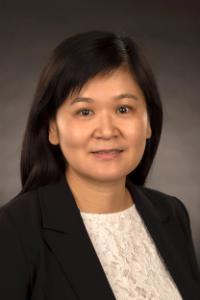
Dr. Shu-Chuan (Grace) Chen
Professor - Statistics
Office: PS 321A
Ph.D.: Statistics and Operations Research, Pennsylvania State University, 2003
Research Interests: Bioinformatics, high-dimensional clustering, mixture models, biostatistics, data mining
My research mainly focuses on bioinformatics, especially in developing statistical methods and algorithms for functional genomic data. My past publications involved the development of mixture models for clustering high dimensional sequences, its related theoretical justifications and applications in various areas. I have recently been collaborating with researchers on disease studies and air pollution studies. In my earlier career, I have published papers in neuron spike trend studies, analysis of Presidential election date and DNA sequences' matching probability.
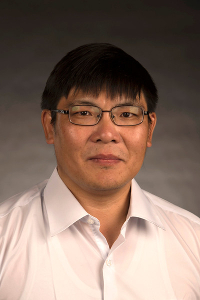
Ph.D.: Mathematics, University of Notre Dame, 2002
Research interests: Lie theory, Representation theory
My main research interest lies in Lie theory and representation theory. Suppose that W is a Coxeter group, e.g., a finite group generated by reflections on a Euclidean space. Then W can be decomposed into a disjoint union of left cells or two-sided cells. These cell structures can be applied to construct the representations of W and the representations of the Hecke algebra of W explicitly. When W is a Weyl group or an affine Weyl group, the two-sided cells of W are also closely related to the unipotent classes in the corresponding linear algebraic group. Algebraists try to find an explicit description of the left cells and two-sided cells in each W, especially in the case when W is an affine Weyl group.
I am also interested in applied mathematics, e.g., the theory of asset pricing in mathematical finance.

Dr. Derek Eckman
Assistant Professor - Mathematics Education
Office: PS 316-D
Ph.D.: Mathematics Education, Arizona State University, 2023
Research Interests: Mathematics Education
I am interest in how individuals and communities use representations to record or communicate their ideas about mathematics. My work is inherently interdisciplinary, and I frequently work with education-research colleagues from across the university and college of education.
Some of my recent projects have included (1) using principles of realistic mathematics education (RME) to improve students' ability to construct the logic of conditional statements, (2) the coevolution of students' meanings for infinite series topics and their (sometimes novel) symbolization, and (3) evaluating students' understanding of various communication tools in mathematics (e.g., graphs, quantifiers, argumentation strategies). In my future work, I hope to also begin exploring communication through representations from the perspective of in-practice and pre-service teachers.
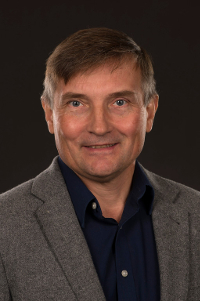
Ph.D.: Mathematics, Novosibirsk State university, Russia, 1996
Research interests: Numerical Analysis, Inverse problems for PDE, CFD.
My main research interests lie in the area of Numerical Analysis and Scientific Computation. More specifically, I focus on the development of computational approaches to the solution of applied mathematical problems arising from wide range of applications including computational electromagnetics, medical imaging, inverse problems, computational fluid dynamics, and computational finance. The results of my research recently appearing in internationally recognized publications were related to Krylov subspace based numerical methods for large sparse nonsymmetric algebraic systems and regularized stochastic optimization algorithms in risk portfolio management.
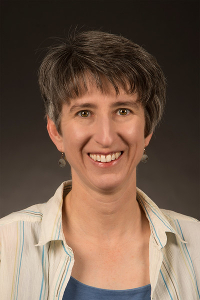
Dr. Cathy Kriloff
Professor
Office: PS 316C
Ph.D.: Mathematics, University of Michigan, 1995
Research interests: Deformation algebras, graph theory, representation theory
My research primarily concerns algebras and graphs related to finite groups generated by reflections of a vector space. Recent research projects involve graph theory measures, deformations of skew group algebras for symmetric groups, and the spectra and traversability of Cayley graphs of complex reflection groups. Past research concerned Hecke algebras for noncrystallographic real reflection groups, their representations, and related hyperplane arrangements.
If you are a student interested in research opportunities, come ask about possible projects in graph theory or algebra.
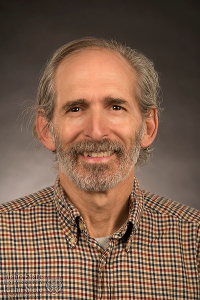
Ph.D.: Mathematics, Stanford University, 1986
Research interests: Differential geometry, Calculus of variations
My research involves applications of variational calculus to problems in differential geometry. The shape of surface interfaces is found by minimizing a certain surface energy. We are particularly interested in anisotropic interfacial energies. This means that the energy depends on the direction of the surface, as in a crystal.
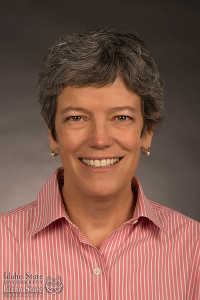
Ph.D.: Mathematics, University of Michigan, 1995
Research interests: Lie groups, geometry, and dynamical systems
My research is on geometric and dynamical problems related to Lie groups and Lie algebras. Recently I have been interested in the Ricci flow for homogeneous spaces, soliton metrics on nilpotent Lie algebras, and Anosov maps on nilmanifolds.

Dr. Patrick X. Rault
Department Chair
Office: PS 318-B
PhD: Mathematics, University of Wisconsin, 2008
Research interests: Matrix theory, number theory, mathematics education
I work on questions in matrix analysis, particularly involving numerical ranges over the complex numbers and over finite fields. I also collaborate with education researchers on grants to study and support student success, with a special emphasis on communities of practice.
If you would like to schedule a time to talk, please visit my booking calendar to book a meeting.
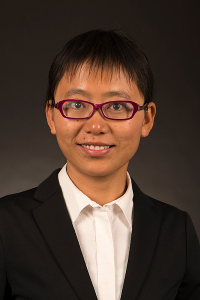
Ph.D.: Mathematics, Auburn University, 2014
Research interests: Integro-differential equations, dynamical systems and their applications in biology and ecology.
Recent research projects involve the differential equations with nonlocal diffusion operators, which can be considered as a nonlocal analog of the classical diffusion operators (the Laplacian operator). Among others, I'm interested in establishing results for nonlocal differential equations analogous to those of classical differential equations from the perspectives of spectral theory (eigenvalue problems), symptotic dynamics (long time behaviors), as well as applications to population models.
There are some undergoing research projects for undergraduates. Analyze the ordinary differential equation from the geometric point of view and use MATLAB or other techniques to illustrate the asymptotic behavior of solutions qualitatively. There are a variety of applications in Engineering, Chemistry, Physics, and many other scientific subjects. For example, the bifurcation of a system when some control parameters are changing, and the steady state of a system when the time goes to infinity.

Dr. Emanuele Zappala
Assistant Professor
Office: PS 319-D
Ph.D.: Mathematics, University of South Florida, 2020
Research Interests:
My research interests encompass various topics in machine learning, algebra, topology and theoretical/computational physics.
More specifically, I am interested in integral equations and iterative methods in operator learning, applying numerical methods to machine learning problems governed by nonlocal spatiotemporal behavior. These approaches have various applications in computational physics and biology.
Another significant component of my research is devoted to topics in quantum algebra/topology, including Yang-Baxter operators, self-distributive structures, cohomology, and their generalizations within symmetric monoidal categories. These investigations hold implications for low-dimensional topology and theoretical physics.

Ph.D.: Mathematics, Pennsylvania State University, 2008
Research interests:
My research is in the numerical solution of linear and nonlinear partial equations, especially the finite element methods and the related efficient multilevel linear solvers. My earlier works are mainly on developing efficient multilevel solvers for the linear systems arising from the finite element approximation of the diffusion equations, Maxwell's equations, etc. in heterogeneous media. My recent research focuses more on developing various types of finite element methods (discontinuous Galerkin, weak Galerkin, virtual element, etc.) for a large class of nonlinear partial differential equations, as well as developing the related efficient solution methods.
